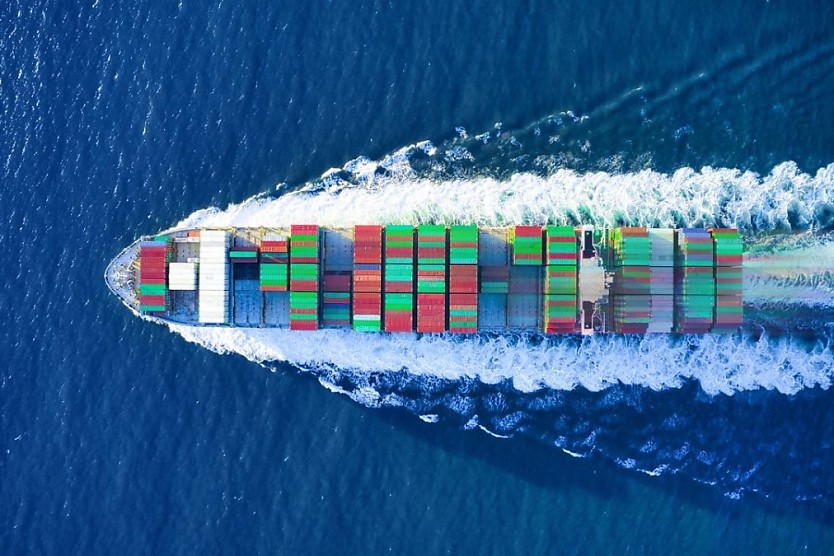Contextualising the DP World union debacle: ‘The sky is not falling’
SHARE THIS ARTICLE

The DP World industrial dispute has been dominating headlines recently, with some connecting the incident to the federal government’s industrial relations reforms. While the dispute is worthy of our attention, it’s not because Australia is on track to return to its heavily unionised past.
A backlog has been building in Australian ports since last October when the DP World industrial dispute began. At the core, the dispute concerns pay – as workers at the company are being paid substantially less than at competing companies, while DP World claims its hands are tied on pay by cumbersome industrial agreements.
The dispute warrants our attention because of the potential magnitude of its disruption, not because it heralds a return to a more unionised past. Let’s begin with the disruption costs.
According to the Freight and Trade Alliance director Paul Zalai, China has cancelled one-fifth of its container ships bound for Australia this January because of the DP World conflagration, reported The Australian. DP World has said the dispute has been costing the national economy $84 million per week since it began in October last year – a figure which Mr Zalai thinks is an underestimate.
It’s not hard to imagine how these costs will affect the average Australian consumer as our already pressured supply chains are further disrupted.
Deflated union activity
Costs aside, some are speculating that the dispute signals a coming hike in union activity off the back of the federal government’s industrial relations reforms.
In an opinion piece for The Australian Financial Review, Graeme Watson and Kirsty Faichen wrote of one aspect of the federal government’s new industrial relations reforms: “The danger for business is that the seeds of union militancy, such as is occurring in the current DP World dispute, will be sown in other industries.”
The “danger", they said, arises from a new requirement that awards include a term establishing the rights of the union delegate. While the precise nature of that requirement will be hashed out by the Fair Work Commission, the new right has attracted significant criticism.
“The provisions of the ‘Closing Loopholes’ Bill affording broad new rights to union delegates are unreasonable and unnecessary. They are a recipe for workplace chaos and disputation,” said Innes Willox, chief executive of the Ai Group.
HR Leader spoke with University of Sydney Associate Professor Chris F Wright to add some context to these claims. He said that while the reforms may increase union access to workplaces, it’s worth mentioning that current rights of access are weak by historical standards.
“Australia’s union laws are restrictive by historical standards. This has caused major problems across the labour market,” he wrote in an article on the topic.
“Legislative changes in the 1990s imposed significant limits on union access to workplaces, which drove a sharp fall in the proportion of workers who are union members.”
Dr Wright’s research, in collaboration with Associate Professor Stephen Clibborn of the University of Sydney, found that these access restrictions directly contributed to a “significant rise in wage theft” as unions struggle to assist workers in recovering lost wages.
Even if the federal government’s reforms increase the rights of access among union delegates, the growth will be from a significantly depressed level.
The right of access debate is a microcosm of a broader conversation about a perceived increase in union activity as a consequence of the federal government’s industrial reforms. When asked about whether he anticipates such an increase, Dr Wright told HR Leader the following: “I imagine these laws, if passed, will give some industrial power. But industrial action is still very hard to take.”
“By international standards, our system makes it very hard for unions to take industrial action, and I’m not anticipating [these reforms] will cause a significant increase in industrial action.”
The other thing to note, said Dr Wright, is that union activity is significantly deflated by historical standards. “You can see, since the 1980s, the average number of working days lost to industrial action has plummeted. I think it went up a little bit yesterday, but it’s still very, very low, historically.”
Plummeting membership density
The same can be said for national union membership rates.
In 1890 – with 200,000 union members belonging to 1,400 unions – Australia was the most unionised nation in the world per capita. In other words, if you picked an Australian at random, you were more likely to land on a union member than if you’d done the same in any other country. This is referred to as “membership density”.
In 2018, our membership density ranked 23rd in the world at 13.7 per cent. In first place came Iceland at 91.8 per cent followed by Sweden (68 per cent), Denmark (66.5 per cent), and Finland (60.3 per cent).
But it wasn’t just Scandinavian countries that came in ahead of Australia. Consider, for example, Canada (25.9 per cent), the UK (23.4 per cent), New Zealand (18.8 per cent), and Italy (34.4 per cent).
While the causes are many and varied, the point is that the federal government’s industrial relations reforms have a steep hill to climb if the fears of some commentators of a return to a union-dominated workforce are to be realised.
“We get something like the DP World dispute, and there’s a fair bit of attention paid to it, but, in most other countries, this would be far more common,” he said.
“Even if there are some more disputes like this, it’s not to say ‘the sky is falling’ since our levels are low compared with historical and international standards.”
RELATED TERMS
Industrial relations is the management and evaluation of the interactions between employers, workers, and representative organisations like unions.
Nick Wilson
Nick Wilson is a journalist with HR Leader. With a background in environmental law and communications consultancy, Nick has a passion for language and fact-driven storytelling.

